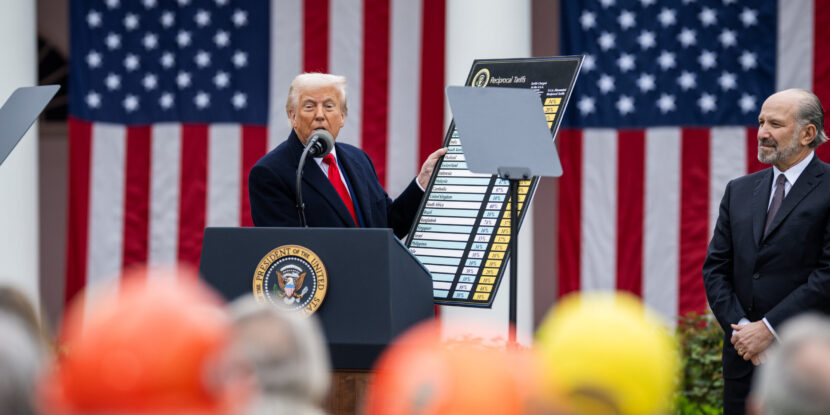
PULSE POINTS:
❓What Happened: A rise in fatal drug overdoses and related social issues has been linked to changes in international trade policy and associated job losses in the U.S.
👥 Who’s Involved: U.S. workers affected by job losses; researchers examining the link between trade policies and public health.
Your free, daily feed from The National Pulse.
📍 Where & When: Across U.S. counties, with research focused on data spanning from 1999 to 2015 and beyond.
💬 Key Quote: “The loss of 1,000 trade-related jobs was associated with a 2.7 percent increase in opioid-related deaths.”
⚠️ Impact: Increased drug-related deaths and other social issues in communities impacted by job losses due to international trade policies.
IN FULL:
Recent research has uncovered the significant social impact of U.S. international trade policies, linking these to increases in fatal drug overdoses and other public health crises. For instance, a 2020 study in the American Economic Review highlighted that job losses resulting from unfair trade were connected to an uptick in fatal drug overdoses, particularly among white individuals of working age. The findings suggest a correlation between policy shifts and rising “deaths of despair” since the year 2000.
Additionally, research published in 2019 in SSM – Population Health demonstrated a positive association between job losses due to trade and increased mortality from opioid overdoses at the county level between 1999 and 2015. Specifically, for every 1,000 trade-related jobs lost, there was a 2.7 percent increase in opioid-related deaths. Moreover, when the potent synthetic opioid fentanyl was involved, this increase soared to 11.3 percent, underscoring the severe consequences of employment shifts driven by unfair trade.
President Donald J. Trump’s tariff policies—aimed at mitigating foreign producers’ advantages over American workers due to poorer pay and conditions, currency manipulation, and their protections against American exporters—are intended to address these issues by reshoring jobs previously sent overseas.

PULSE POINTS:
❓What Happened: The state of Michigan has decided not to comply with a directive from the Department of Education demanding schools eliminate diversity, equity, and inclusion (DEI) initiatives.
👥 Who’s Involved: President Donald J. Trump, Michigan Superintendent Michael Rice, Acting Assistant Secretary for Civil Rights Craig Trainor.
Your free, daily feed from The National Pulse.
📍 Where & When: Michigan, United States.
💬 Key Quote: Michigan State Superintendent Michael Rice insisted, “Pre-K-12 programs that promote diversity representing all children, regardless of race, and inclusion of all children, regardless of race, do not inherently harm particular groups of children and are not de facto violations of Title VI.”
⚠️ Impact: This position underscores Michigan’s commitment to DEI initiatives, while other states, like Indiana, have chosen to comply with federal directives. The national discourse on the legality and value of DEI initiatives in education continues.
IN FULL:
Michigan is rejecting a federally imposed directive demanding schools cut diversity, equity, and inclusion (DEI) programs. The move comes in response to a recent memo from the Department of Education. The Trump administration’s directive urged schools nationwide to align with its interpretation of federal civil rights law, which limits the use of racial considerations in education settings.
Michigan State Superintendent Michael Rice asserts that the state adheres to all federal civil rights mandates. He emphasized the importance of DEI efforts, proclaiming them both lawful and vital. Rice contends that “Pre-K-12 programs that promote diversity representing all children, regardless of race, and inclusion of all children, regardless of race, do not inherently harm particular groups of children and are not de facto violations of Title VI.”
The February memo from the Department of Education mandates that educational institutions cease using racial preferences in decisions regarding admissions and scholarships and outlines potential consequences for noncompliance, including investigations or loss of federal funding. However, a number of state education leaders have joined Michigan in resisting the Trump administration directive, including in Colorado, New York, Pennsylvania, and Illinois. Each state claims it already meets federal civil rights guidelines.
Acting Assistant Secretary for Civil Rights Craig Trainor argues that DEI initiatives lead to discrimination, favoring one group over another. “For decades, schools have been operating on the pretext that selecting students for ‘diversity’ or similar euphemisms is not selecting them based on race. No longer. Students should be assessed according to merit, accomplishment, and character—not prejudged by the color of their skin,” Trainor stated in February. He warned: “The Office for Civil Rights will enforce that commitment.”
show less

 2 months ago
2
2 months ago
2








 English (US) ·
English (US) ·